Press freedom: Australia’s ‘draconian laws’ spark global concern
The Federal Government has been warned its “indifferent and disdainful” approach to press freedoms and human rights is eroding its standing and credibility.
National
Don't miss out on the headlines from National. Followed categories will be added to My News.
EXCLUSIVE
The Federal Government’s “indifferent and disdainful” approach to press freedoms and human rights in Australia was eroding its standing and credibility in the Asian region, the Paris-based Reporters Without Borders group has warned.
Such is the concern, the international body is flying a representative to Australia to evaluate the situation as it looks to downgrade the nation’s world press freedom standing in light of laws used against whistleblowers, raids on a News Corp journalist and ABC headquarters and the arrest of a French TV crew in Queensland earlier this year.
Reporters Sans Frontiers (RSF) spokesman Daniel Bastard said there were deep concerns with what was happening in Australia with “draconian laws” passed potentially compromising the press.
“Yes, it’s a major concern for us, the first reason is that Australia plays a role model in the region and we don’t really want this kind of model and Canberra is clearly losing credibility compared to Wellington (NZ) in terms to press freedom,” Mr Bastard told News Corp Australia.
RELATED
When government keeps the truth from you, what are they covering up?
The slide into secrecy must stop
Australians fear laws denying them basic information
“Secondly, Australia is following a trend among liberal democracy governments around the world, who tend to be indifferent, if not disdainful, regarding human rights and respect for press freedom.”
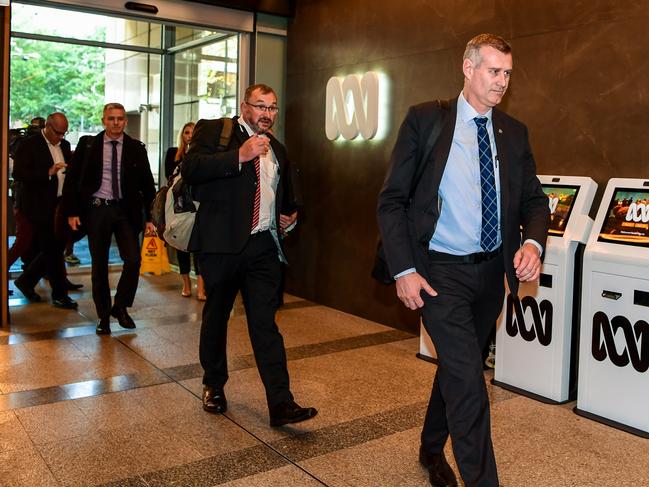
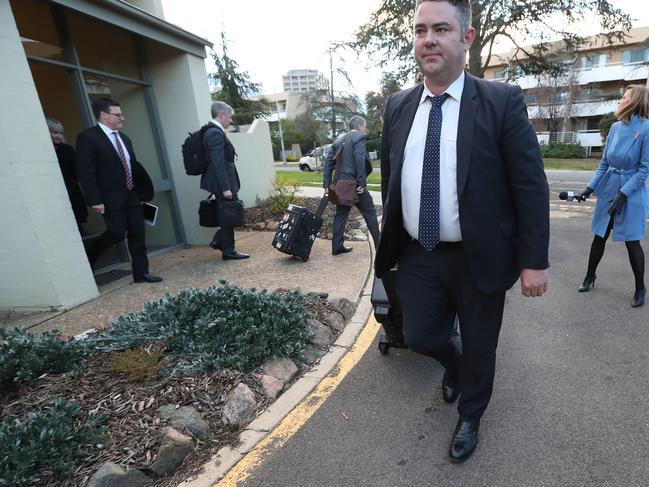
Mr Bastard said it was not clear why the AFP had been so “zealous” in its raid on News Corp journalist Annika Smethurst and the ABC headquarters or the Queensland Police’s “stupid” move in July to arrest and charge a French TV crew for “trespass” when they were on public space covering an anti-coal protest at Abbot Point.
The reasons for the actions, he said, were designed to send a message.
“It is still hard to explain why … but one highly possible reason was that they wanted to send a clear message to those who dare to investigate what the government doesn’t want them too — police harassment is what you’ll get if you do so,” he said.
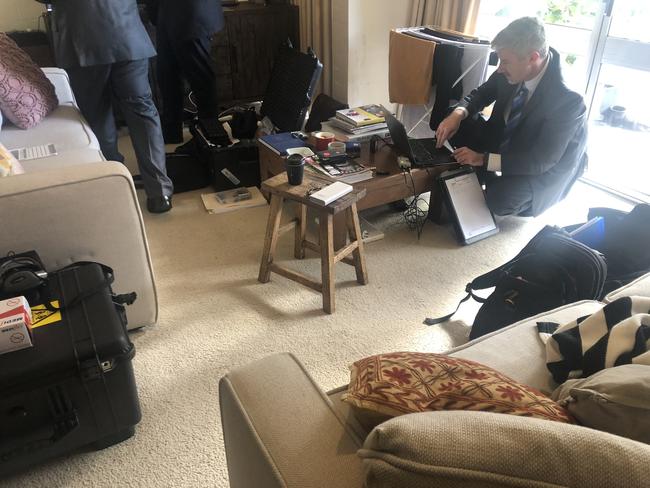
“This is a clear act of intimidation, aimed at encouraging self-censorship among the journalistic community. The chilling effect it can have over the whole community of information providers is devastating. But this is why we give our full support to investigative journalism and whistleblowers.”
He added the concept of national security had to be always balanced with the concept of national interest.
“National Security cannot be an acceptable pretext to prevent journalists from investigating issues that deal with the national interest of a country … This is the role of whistleblowers and journalists to raise their voice when they sincerely think that a question of public interest is being hidden to their fellow citizens and a democratic State must respect this principle.”
Australia is currently ranked 21 on the world press freedoms list after country’s including Uruguay, Suriname and Estonia but the ranking was done in April ahead of the raids.
The best perform press freedom countries were in Scandinavia including Norway, Finland and Sweden and the worst were Turkmenistan, North Korea and China.
AFP ORDERS REVIEW AFTER MEDIA RAIDS
The Australian Federal Police has ordered an internal review of how it handles press freedoms and whistleblowers with a former top cop appointed to write new protocols on conducting arrests, raids and investigations.
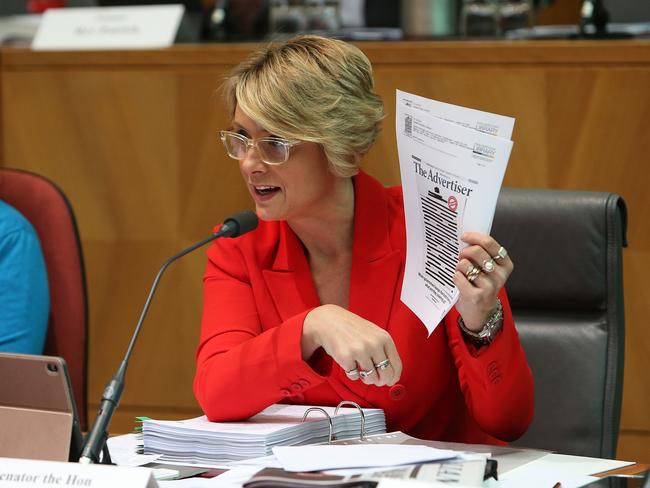
This will be the third review into press freedoms in the wake of raids on the home of News Corp journalist Annika Smethurst and the ABC headquarters in June over consecutive days and a planned but abandoned third day of raids believed to be on News Corp.
Newly appointed AFP commissioner Reece Kershaw has told a parliamentary committee hearing he had not seen the front page of any of Monday’s newspapers, all of which had
blacked out front page news stories in protest to perceived erosion of press freedoms.
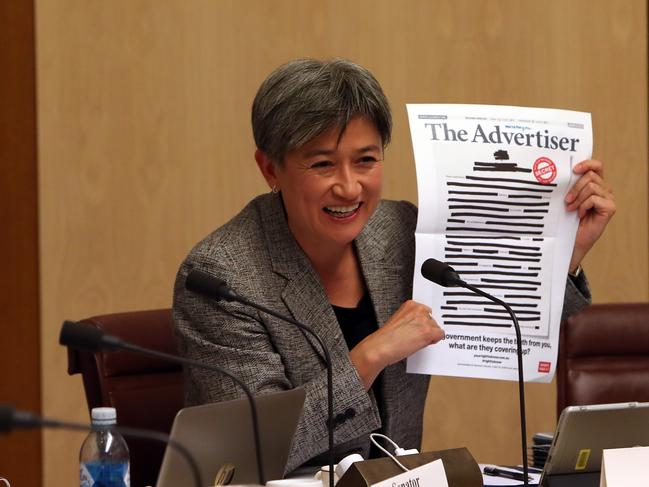
Labor’s deputy Senate leader Kristina Keneally then helpfully held up each redacted front page of News Corp, Seven West and Fairfax newspapers for him to see for which he thanked her before she launched into a series of questions related to press freedoms.
Mr Kershaw said he did not know what sparked the extraordinary nation-wide media protest as he was “an evidence-based police officer and for me I haven’t turned my mind to that” and he had not spoken to any media editor.
But he said he believed in democracy and press freedoms and that was why he had appointed retired deputy AFP commissioner and Australian Crime Commission chief executive John Lawler to review AFP’s handling of related issues and also speak personally with editors “when the time was right”.
He could not say whether this would be before two parliamentary inquiries into press freedoms or his own ordered internal review.
The review would look at all sensitive investigations including unauthorised disclosures, raids on the home of a News Corp journalist and ABC Sydney headquarters, espionage and foreign interference.
“The review will not be an audit into current matters at hand but rather a holistic approach to ensure we have in place investigative policy and guidelines that are fit for purpose,” he told the Senate legal and constitutional affairs committee.
“Mr Lawler will provide my office with options around opportunities for interventions and strategies to ensure the AFP is best placed to address sensitive investigations in the future.”
Mr Kershaw said this would including “baselining” of what constituted a sensitive investigation, training and technology required, reformation of governance and business processes.
He said he had personally picked Mr Lawler who was a highly regarded investigator and the highest level of integrity and impartiality.
His review would be made public.
Mr Lawler, a highly respected veteran crime fighter, was 29 years with the AFO and led the operations to foil a terrorist attack in Australia in 2005 in Sydney and Melbourne, tackled organise crime and as head of the then Crime Commission revealed the bombshell findings on drugs and corruption in sport including match fixing.
Originally published as Press freedom: Australia’s ‘draconian laws’ spark global concern


